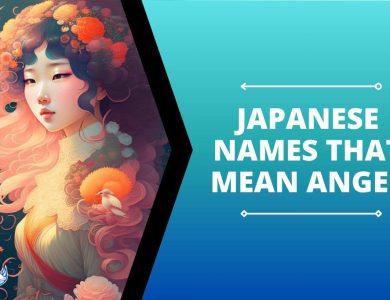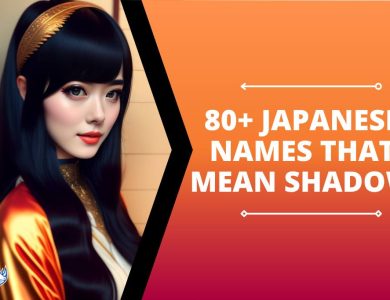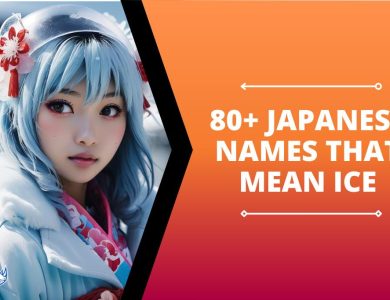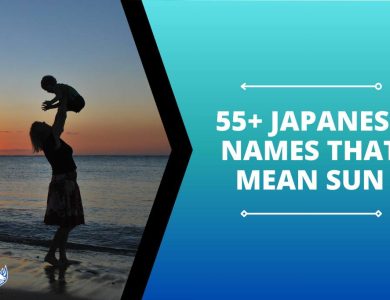100+ Gender Neutral Japanese Names For Your Baby
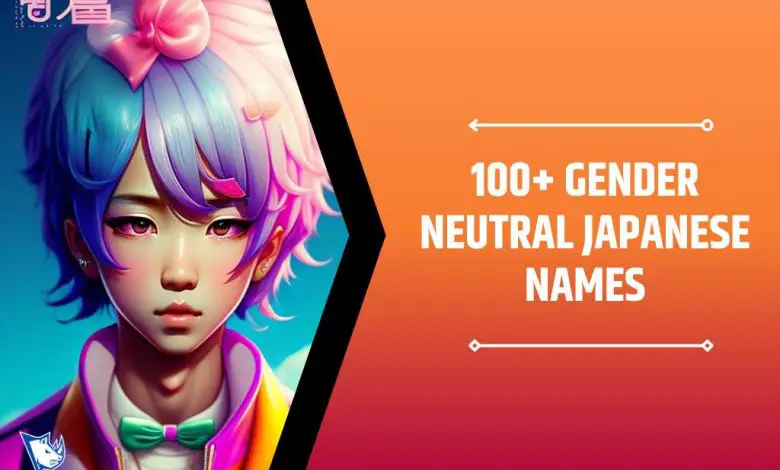
In a world where gender norms and stereotypes continue to shape our identities, the concept of gender neutrality is becoming increasingly important. Japanese culture has a long history of embracing fluidity in gender expression, reflected in the language and naming conventions used in everyday life.
Gender neutral Japanese names, in particular, have gained popularity as a way to break free from traditional binary categories and allow individuals to express their true selves.
In this blog, we will explore the significance of gender neutral Japanese names and celebrate the diversity and inclusivity they bring to our society. Join us on this journey of self-discovery and empowerment as we delve into the world of gender neutral names in Japanese culture.
Gender Neutral Japanese Names
Here are 100+ Gender Neutral Japanese Names.
Aki – Meaning “autumn” or “bright,” symbolizing change and transition.
Ami – Meaning “friend” or “beautiful,” representing companionship and beauty.
Arata – Meaning “fresh” or “new,” signifying renewal and innovation.
Asuka – Meaning “tomorrow fragrance,” evoking a sense of anticipation and hope for the future.
Chihiro – Meaning “thousand questions” or “wise,” reflecting curiosity and intellect.
Daiki – Meaning “great glory” or “big tree,” representing strength and resilience.
Emi – Meaning “beautiful blessing,” symbolizing happiness and joy.
Haru – Meaning “spring” or “sunlight,” representing growth and vitality.
Hikaru – Meaning “radiance” or “light,” symbolizing enlightenment and illumination.
Hinata – Meaning “sunny place” or “towards the sun,” evoking warmth and positivity.
Itsuki – Meaning “tree” or “hope,” symbolizing growth and optimism.
Jun – Meaning “obedient” or “pure,” representing honesty and integrity.
Kaede – Meaning “maple tree,” symbolizing resilience and adaptability.
Kaito – Meaning “ocean flying” or “flying kite,” evoking a sense of freedom and adventure.
Katsu – Meaning “victory” or “to overcome,” symbolizing triumph and success.
Kazuki – Meaning “harmonious hope,” representing unity and aspiration.
Kei – Meaning “blessing” or “respect,” signifying gratitude and reverence.
Kenji – Meaning “intelligent ruler,” symbolizing wisdom and leadership.
Kiko – Meaning “chronicle” or “record,” representing history and legacy.
Kiri – Meaning “fog” or “mist,” evoking mystery and intrigue.
Koharu – Meaning “small spring,” symbolizing youthfulness and vitality.
Kyo – Meaning “cooperation” or “capital,” representing collaboration and significance.
Maki – Meaning “true hope” or “sincere tree,” symbolizing authenticity and growth.
Michi – Meaning “path” or “way,” signifying direction and purpose.
Mio – Meaning “beautiful cherry blossom” or “waterway,” representing beauty and fluidity.
Nao – Meaning “docile” or “honest,” symbolizing sincerity and trustworthiness.
Natsumi – Meaning “beautiful summer,” evoking warmth and vibrancy.
Ren – Meaning “lotus” or “love,” signifying purity and affection.
Riku – Meaning “land” or “shore,” representing stability and grounding.
Rio – Meaning “river” or “center,” symbolizing flow and balance.
Sakura – Meaning “cherry blossom,” evoking beauty and impermanence.
Sora – Meaning “sky” or “heaven,” representing vastness and possibility.
Toshi – Meaning “city” or “intelligent,” symbolizing urbanity and intellect.
Yori – Meaning “trust” or “rely,” representing dependency and connection.
Yuki – Meaning “snow” or “happiness,” symbolizing purity and joy.
Yuuki – Meaning “courage” or “brave,” signifying bravery and resilience.
Akira – Meaning “bright” or “clear,” evoking clarity and insight.
Haruka – Meaning “distant” or “far off,” symbolizing aspiration and ambition.
Kimi – Meaning “noble” or “righteous,” representing dignity and honor.
Kiyoshi – Meaning “pure” or “clean,” signifying integrity and innocence.
Makoto – Meaning “sincerity” or “truth,” symbolizing honesty and authenticity.
Minato – Meaning “harbor” or “port,” representing refuge and safety.
Rei – Meaning “zero” or “spirit,” evoking emptiness and purity.
Ryuu – Meaning “dragon,” symbolizing strength and power.
Sachi – Meaning “happiness” or “joy,” representing positivity and contentment.
Shin – Meaning “new” or “true,” signifying renewal and authenticity.
Shiori – Meaning “guide” or “poem,” symbolizing inspiration and direction.
Takumi – Meaning “artisan” or “skillful,” representing craftsmanship and mastery.
Tsubasa – Meaning “wings” or “flight,” evoking freedom and liberation.
Yuri – Meaning “lily” or “truth,” symbolizing purity and sincerity.
Aimi – Meaning “love” or “affection,” representing warmth and compassion.
Amari – Meaning “not much” or “little,” signifying simplicity and humility.
Azumi – Meaning “safe residence” or “apricot,” symbolizing comfort and nourishment.
Chiaki – Meaning “sparkle” or “shine,” evoking brightness and radiance.
Daichi – Meaning “great wisdom” or “big earth,” representing knowledge and grounding.
Ena – Meaning “affection” or “kindness,” symbolizing empathy and compassion.
Haruki – Meaning “shining brightly” or “spring tree,” signifying vitality and growth.
Harumi – Meaning “spring beauty” or “sunny beauty,” evoking natural elegance.
Hayato – Meaning “falcon” or “fast person,” representing speed and agility.
Hina – Meaning “sunlight” or “greens,” symbolizing warmth and growth.
Hiro – Meaning “abundant” or “prosperous,” evoking wealth and success.
Izumi – Meaning “fountain” or “spring,” representing abundance and refreshment.
Kaito – Meaning “celebrating dragon” or “ocean kite,” symbolizing festivity and freedom.
Kaiyo – Meaning “ocean” or “sea,” evoking vastness and exploration.
Katsu – Meaning “victorious” or “to win,” representing triumph and achievement.
Kazu – Meaning “harmony” or “peace,” symbolizing unity and tranquility.
Keiko – Meaning “blessed child” or “lucky child,” evoking good fortune.
Koji – Meaning “light” or “shining second son,” signifying brightness and clarity.
Kumi – Meaning “long time” or “eternal beauty,” representing endurance and beauty.
Kurumi – Meaning “walnut” or “tree fruit,” evoking nourishment and growth.
Masa – Meaning “true” or “just,” symbolizing honesty and righteousness.
Miki – Meaning “beautiful princess” or “tree,” representing grace and strength.
Nao – Meaning “docile” or “straightforward,” signifying simplicity and honesty.
Nozomi – Meaning “hope” or “wish,” evoking optimism and aspiration.
Oki – Meaning “big” or “great,” symbolizing magnitude and importance.
Riko – Meaning “child of truth” or “jasmine child,” representing purity and sincerity.
Saki – Meaning “blossom” or “hope,” evoking growth and potential.
Setsuna – Meaning “moment” or “instant,” symbolizing transience and impermanence.
Shun – Meaning “fast” or “speedy,” signifying agility and quickness.
Takara – Meaning “treasure” or “precious,” representing value and importance.
Tamaki – Meaning “jewel tree” or “many trees,” evoking abundance and prosperity.
Tomo – Meaning “friend” or “companion,” symbolizing camaraderie and support.
Toshi – Meaning “wise” or “intelligent,” representing knowledge and sagacity.
Tsukasa – Meaning “one who shines like the moon,” symbolizing brightness and clarity.
Umeko – Meaning “plum blossom” or “elegant child,” evoking beauty and grace.
Wren – Meaning “small bird” or “songbird,” symbolizing freedom and melody.
Yori – Meaning “trust” or “reliance,” signifying dependability and trustworthiness.
Yua – Meaning “to bind” or “to connect,” representing unity and connection.
Yuma – Meaning “archer” or “bowman,” evoking precision and focus.
Yuuta – Meaning “gentle” or “kind,” symbolizing compassion and empathy.
Aoi – Meaning “blue” or “hollyhock,” representing tranquility and calmness.
Asahi – Meaning “morning sun” or “bright sun,” evoking warmth and energy.
Chihiro – Meaning “thousand questions” or “wise,” symbolizing curiosity and wisdom.
Daisuke – Meaning “great help” or “big help,” representing assistance and support.
Emiko – Meaning “smiling child” or “blessed child,” evoking happiness and joy.
Haruki – Meaning “shining brightly” or “spring tree,” signifying vitality and growth.
Hikari – Meaning “light” or “radiance,” representing illumination and clarity.
Hitomi – Meaning “pupil” or “eye,” symbolizing perception and insight.
Kai – Meaning “ocean” or “sea,” evoking vastness and exploration.
Kiri – Meaning “mist” or “fog,” representing mystery and intrigue.
Also Read:
Final Thought
These names hold cultural significance and carry various meanings that can resonate differently with each individual.
